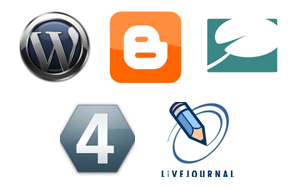A fall back plan
The story continues, as net neutrality legislation moves through the Senate. I'm not sure the ease of offering subscription TV is a win for most in the long run. However, this is just a stepping stone I believe to the inevitable release the big companies have on the rest of the media generators. From the article:
11 to 11. That says to me that maybe 1/2 of the people understand the future impact of laws like these, which designate the mouthpieces that will teach our childen what's what and mold their understanding of what can or should be. Before the Internet, an awful lot of us were placing great authority in television. If you didn't beleive what you saw, you could fall back on talk radio. Before tv, when radio was la plus grande chose au monde, if you didn't believe what you heard, you could fall back on books. Sure some of the books were written by white men and others were missed due to controversial content but primarily, if you wanted data to make sense of, there it was, in a quiet, well-lit place for the sense making. The rate of time absorption is much smaller now, which means that more information moves to more places, more quickly.
Evermore the reasons to educate the 11. To take control of the fumbled rule-making. To participate in communities that are growing the ideas of owner-generated content. Because we're not just "using", we're making and we own, if we want to, the next most widely distributed media of our time. I guess the fall back idea is this. I stopped watching TV for the most part, a couple for years ago (except for Battlestar Galactica and the Colbert Report). Reality just TV killed it for me, in a nasty, camera-on-the-wrong-people, foul-mouthed, poorly dressed and talk-show-gone-full-time kind of way. I took a hiatus from the news even, because I was spending so much post-news time trying to sort out the news from the politics-driven-information. I realized, in the wake of my doubt, I had no real fall back plan for staying informed. Informed in a way that didn't make me a donkey or an elephant. Same goes for the newspapers. Software makers started trying to sort this problem out, applying logic to trends in the 're-distribution' of a story and giving it credence that way or 'popularity', as if I give a &*%$ what complete strangers think.
I heard a rumor that somewhere there is being maintained, a historical, electronic archive. Does anyone know, is that true? Is there a filter running on it? Can one be run retroactively? More importantly, can one be run retro once we determine which filters make sense? What do I care about for any given piece of news?
1. Credibility. Have the facts been checked? Is the person reporting wearing a chicken suit?
2. Association. Is the author of the news associated with anyone I dislike? Or should dislike? Can I toggle my likes and dislikes? I'm moody.
3. Related stories. How many other stories/media types that meet cares #1 and 2 can be related to the orignal piece? Media choices make me demanding. Future generations will probably absorb more with rich choices.
4. Accessibility. I want it here and now.
Maine Republican Sen. Olympia Snowe and Sen. Byron Dorgan, a North Dakota Democrat, tried to add further protections by barring discrimination of content or service based on origin, destination or ownership, but it failed to get a majority vote. The final tally was 11 to 11.
"That means for the first time we are going to have a two-tiered Internet," said Snowe, who bucked her party. "Broadband operators will be able to pick winners and losers, they will be able to choose the Web sites of their choice."
11 to 11. That says to me that maybe 1/2 of the people understand the future impact of laws like these, which designate the mouthpieces that will teach our childen what's what and mold their understanding of what can or should be. Before the Internet, an awful lot of us were placing great authority in television. If you didn't beleive what you saw, you could fall back on talk radio. Before tv, when radio was la plus grande chose au monde, if you didn't believe what you heard, you could fall back on books. Sure some of the books were written by white men and others were missed due to controversial content but primarily, if you wanted data to make sense of, there it was, in a quiet, well-lit place for the sense making. The rate of time absorption is much smaller now, which means that more information moves to more places, more quickly.
Evermore the reasons to educate the 11. To take control of the fumbled rule-making. To participate in communities that are growing the ideas of owner-generated content. Because we're not just "using", we're making and we own, if we want to, the next most widely distributed media of our time. I guess the fall back idea is this. I stopped watching TV for the most part, a couple for years ago (except for Battlestar Galactica and the Colbert Report). Reality just TV killed it for me, in a nasty, camera-on-the-wrong-people, foul-mouthed, poorly dressed and talk-show-gone-full-time kind of way. I took a hiatus from the news even, because I was spending so much post-news time trying to sort out the news from the politics-driven-information. I realized, in the wake of my doubt, I had no real fall back plan for staying informed. Informed in a way that didn't make me a donkey or an elephant. Same goes for the newspapers. Software makers started trying to sort this problem out, applying logic to trends in the 're-distribution' of a story and giving it credence that way or 'popularity', as if I give a &*%$ what complete strangers think.
I heard a rumor that somewhere there is being maintained, a historical, electronic archive. Does anyone know, is that true? Is there a filter running on it? Can one be run retroactively? More importantly, can one be run retro once we determine which filters make sense? What do I care about for any given piece of news?
1. Credibility. Have the facts been checked? Is the person reporting wearing a chicken suit?
2. Association. Is the author of the news associated with anyone I dislike? Or should dislike? Can I toggle my likes and dislikes? I'm moody.
3. Related stories. How many other stories/media types that meet cares #1 and 2 can be related to the orignal piece? Media choices make me demanding. Future generations will probably absorb more with rich choices.
4. Accessibility. I want it here and now.


Comments